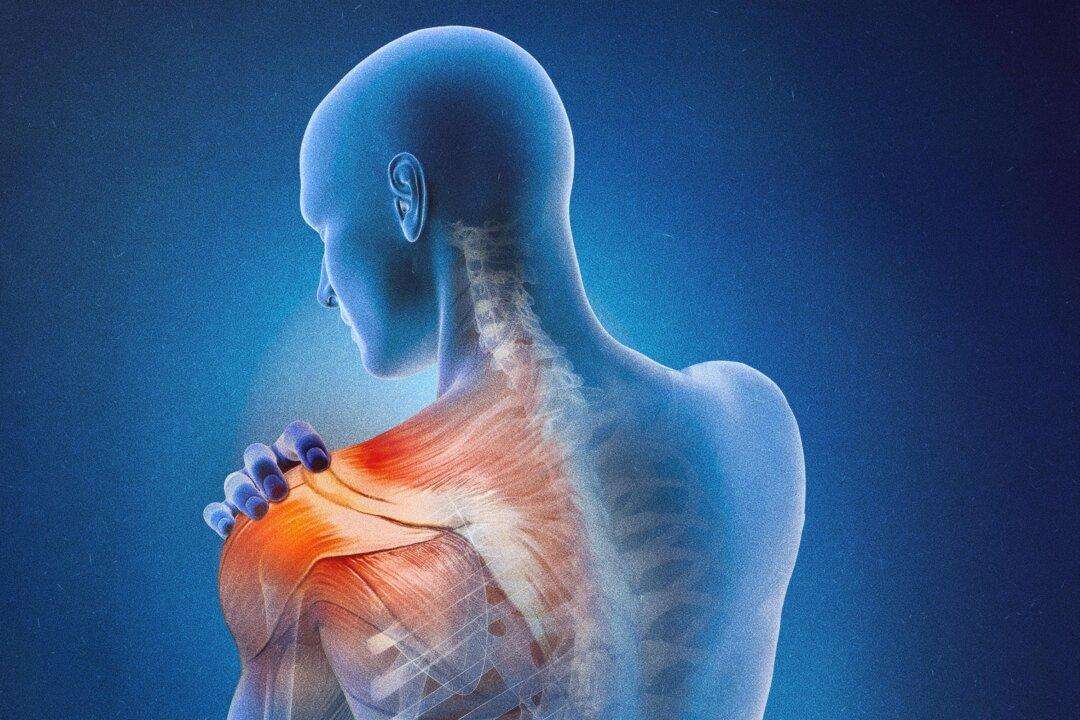Tyler Reed will tell you that the shared physical activities that started transforming fatherhood in the past century remain effective in strengthening father–daughter bonds today.
“I am the blessed father of three daughters who enjoy regular evening walks in a nearby trail,” he said. “We either all ride bikes or we ruck, a popular fitness trend involving carrying weighted backpacks, and use the time to talk about our day.
“As men, we can carry so much internally and often find it hard to talk about our feelings. Being with my little ladies, I try to be frank and talk through how different activities during my day made me feel, while taking the time to enjoy the beauty of nature. It’s one small thing that I know means a lot to them.”
1 Way to Bond
The study involved interviews with 14 women born between 1950 and 1994. Those born in the 1950s tended to remember their fathers as “distant yet exciting strangers whose attention had to be earned”—admired providers who generally remained on the sidelines.In contrast, women born in the 1980s and 1990s were raised in a time that allowed them to build relationships with their fathers through two societal developments. During this era, the concept of involved fatherhood gained traction and physical activity became a parent-related practice, as public health officials championed it as a way to protect against noncontagious diseases such as heart disease. Because physical activity allows men to uphold their masculine identity while offering one-on-one parenting, it became an ideal way to create emotionally intimate bonds.
“Daughters now seem comfortable to bond with fathers while participating in or talking about physical activity, which I view as particularly fascinating,“ John Day, study author and lecturer at the University of Essex School of Health and Social Care, told The Epoch Times in an email. ”It indicates that a social transformation is in progress.”
Since the UK study involved in-depth interviews but relatively few participants, Day said further research is needed to verify and “add nuance” to the conclusions. However, the findings seem reasonable to Holly Ann Schiff, licensed clinical psychologist at South County Psychiatry in Rhode Island. In an email to The Epoch Times, she speculated on the factors that may underlie the bonding effect of shared physical activity.
“Something like taking a walk offers an opportunity for fathers and daughters to spend uninterrupted quality time together,“ she said. ”It also allows for more relaxed and informal communication.”
Effects of Father–Daughter Bonding
“If the bond with a father is strong, it will definitely influence the daughter’s emotional health,” Schiff said. “A loving father can provide validation and affirmation, which will help her develop a strong sense of self-worth.”Effects on Other Relationships
The father–daughter bond affects relationships with others in a positive or negative manner, depending on the quality, Schiff said. An emotionally supportive father fosters a secure attachment style in his daughter, making it more likely that she will form healthy relationships with others.A secure attachment style means that people feel safe and trusting in relationships, believing that they are loved. If the bond is absent or weak, the daughter may feel unimportant or unloved, which can result in lower self-esteem. Weak bonding can also lead to an insecure attachment style, which poses challenges in forming healthy relationships.
“Daughters who have a strong bond with their father may have more positive expectations of relationships and therefore be more likely to seek out respectful, healthy partnerships,” Schiff said. “It can also influence how she perceives herself in the world and whether she feels accepted by men.
“A daughter who lacks a positive father figure may struggle with trust in romantic relationships and tolerate mistreatment.”
Effects on Mental Health
“Daughters with a strong bond with a father will be less likely to develop mental health problems because they have a sense of emotional stability and support,” Schiff said. “Likewise, weak bonding can cause the daughter to be more emotionally unstable and have an increased risk of mental health issues.”Deepen Father–Daughter Bonds
In addition to shared physical activities, there are other ways to foster bonding. Lynn Zakeri, a licensed clinical social worker in Chicago and owner of Lynn Zakeri LCSW Clinical Services, offered her tips in an email to The Epoch Times.“As a daughter and a therapist who sees daughters and fathers, I have several suggestions on what fathers can do to build that relationship,” she said.
- Spend Quality Time Together: What is quality time for a father is not necessarily as important for a daughter. Even if a daughter isn’t interested in a baseball game, meaningful conversations before and during the event can make the experience valuable.
- Be a Good Listener: Rather than focusing on fixing problems, fathers could try to offer understanding and empathy.
- Show Affection: As daughters grow up, expressions of affection may change, but they remain important. Fathers are encouraged to respect their daughters’ boundaries while maintaining warmth and support.
- Encourage Her Interests: Supporting a daughter’s passions and celebrating her achievements foster connection.
- Be Present Emotionally: Checking in daily, offering support, and celebrating achievements help solidify a strong relationship.
Pitfalls to Avoid
“While there are many ways to build a strong bond, certain behaviors can unintentionally create distance,” Carolina Estevez, a licensed clinical psychologist at Soba New Jersey, told The Epoch Times in an email. She advises fathers to avoid:- Overprotectiveness: Offering guidance and support while allowing daughters to navigate independence builds confidence.
- Unhelpful Communication: Being physically present is not enough; fathers should engage in meaningful conversations.
- Overly Critical Attitudes or Unrealistic Expectations: Constructive feedback is helpful, but excessive focus on perfection can damage self-esteem.
- Letting Time Slip Away: Prioritizing shared time and showing up for important moments help maintain a strong bond.
“It’s not just about providing anymore,“ she said. ”The engagement leads to a healthy relationship, which serves as a foundation for a daughter’s psychological well-being throughout life.”





